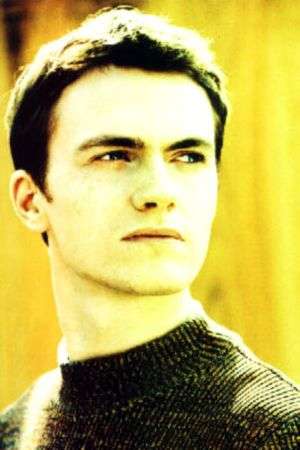|
Back
The Triumph of Personality New York
Weill Recital Hall, Carnegie Hall
10/24/2012 -
Domenico Scarlatti: Sonatas in E Major, A Minor, C Major, F Minor & D Minor, K. 380, 3, 514, 481 & 141
Maurice Ravel: Miroirs
Frédéric Chopin: Piano Sonata No. 2 in B-flat Minor, Op. 35
Franz Liszt: Harmonies poétiques et religieuses: “Funérailles”
Alexandre Tharaud (Pianist) 
A. Tharaud (© Courtesy of the Artist)
What a difference for the young brilliant Alexandre Tharaud, between his appearance at the informal Poisson Rouge six months ago and his recital in the alabaster neo-Classique setting of Weill Hall last night.
In the former, Mr. Tharaud was very much the boyish Frenchman. Chatty, informal, whimsical, playing as much pop/jazz as French (Debussy) and Baroque (Scarlatti). For his older audience last night, he still looked like a kid, but no words escaped his lips, the music was as serious as his demeanor.
In both cases, though, Mr. Tharaud was undeniably a master of the keyboard. His Presto movement of the Chopin was as fast (and error-free) as possible. The Spanish movement of Ravel’s Miroirs was virtually a flamenco. And when he let himself go in the Liszt “Funérailles”, one felt the thunder of the piano shake the whole elegant room.
Nobody could question what he brought to the piano. But questions were raised to interpretations that could be far too idiosyncratic. The latter was especially prominent in several of his Scarlatti sonatas. Nobody was looking for harpsichord replication, nor would that have made much sense on the piano. Nor are these pieces terribly “proper” with their fanfares and clashing dramatic moods.
But Mr. Tharaud’s insistence on hammering out the color was less playful than a bit bothersome (though not as prosaic as his one study in placidity, the F Minor Sonata.) The A Minor Sonata was just the opposite. Notes interrupting each other (virtual Cowell-like tone clusters), 32nd-note phrases jumping out, rhythms seeming to change suddenly...the whole mood was 20th Century modern.
Not everybody’s idea of Scarlatti, but Mr. Tharaud knows what he’s doing.
The Ravel Miroirs were picturesque enough. The waves tumbled over each other in “Une barque sur l'océan”, those Spanish rhythms in “Alborada del gracioso” were beat out with as much insistence as the Spanish notes of the Scarlatti. Yet I was more entranced with the ease that he took these difficulties than the work as a whole.
After the intermission, Tharaud’s Chopin and Liszt were undeniably driving, forceful with as much energy as any pianist can summon up. The opening movement was dynamic, relentless. The funeral march had an unusual returning theme played loudly, but Mr. Tharaud was entitled. And that mystical Presto ending whirled like a sandstorm. Sheer magic.
My favorite of the evening was another funeral music, but Liszt’s “Funérailles” was as heartrending, full, martial and pathetic as any of recent hearing.
I had always thought this had been a memorial to Chopin, but Liszt (as I found out) was celebrating the soldiers of a Hungarian revolution. Franz Liszt, while born in Hungary, not only spoke no Magyar, but his “Hungarian” rhapsodies are Gypsy, not Hungarian. Never mind. Liszt’s feeling was universal and deep, and Alexandre Tharaud gave them velocity, depth and profundity.
After this, in fact, his encores of Bach and Gershwin’s The Man I Love seemed superfluous, denying the audience the memory of that Titanic Liszt.
Harry Rolnick
|